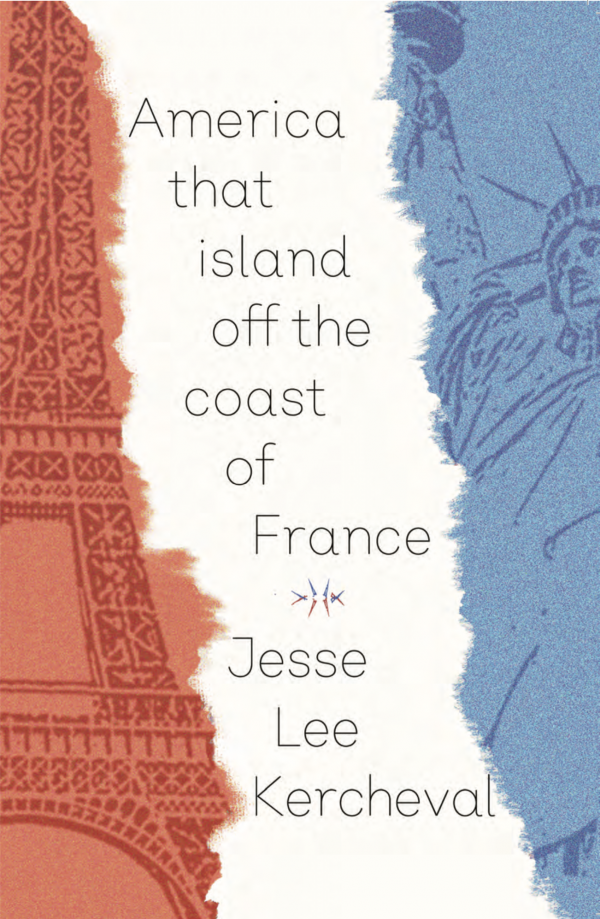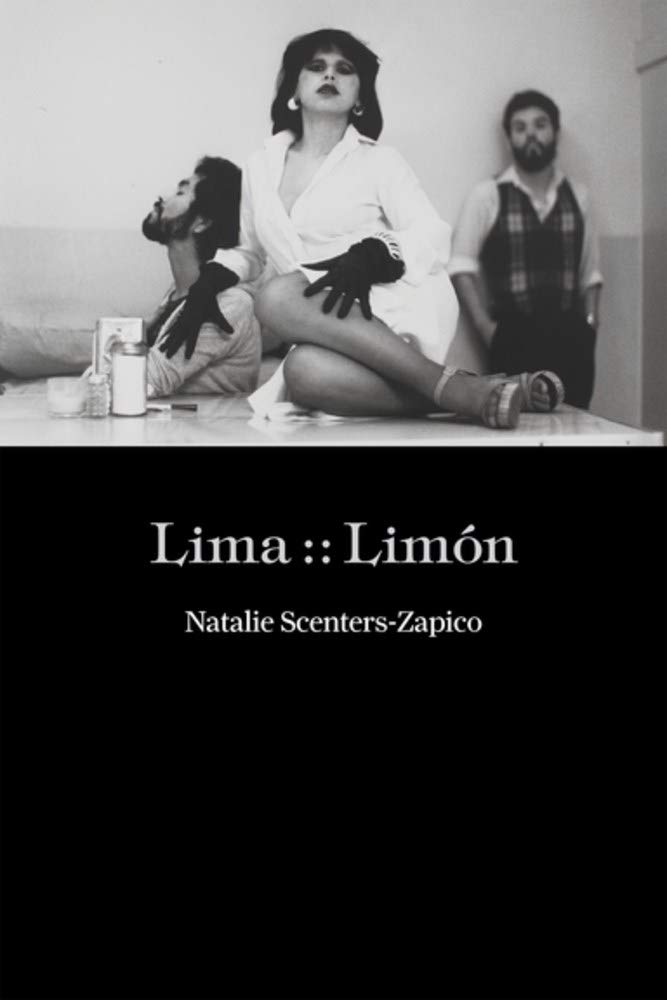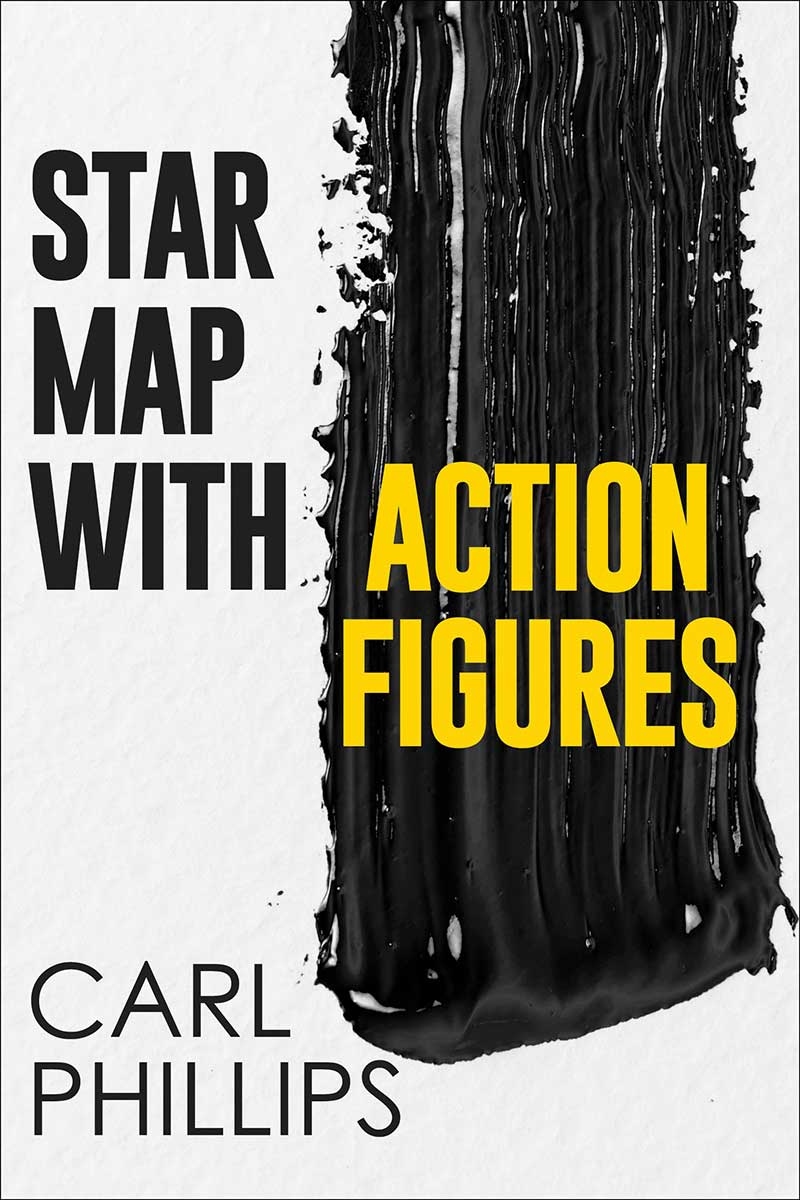America that Island off the Coast of France
By Jesse Lee Kercheval
It is madness, you know
this trying to learn the truth about
the past
it is madness to think
there is truth
In the sprawling lyrical telling of her various lifelines, I’m captivated by how Jesse Lee Kercheval writes across multiple decades as well as distinctly drawn points on the globe (Florida, France, Uruguay), setting her readers up for a most delicious derangement of the senses. These richly concise, yet kaleidoscopically structured glimpses of true and imagined childhoods (hers and her own offspring’s) blend, leap, and break time continuums and continental distances as she returns to the streets of Paris a grown woman, poet, mother, wife, and yet ever the solitary traveler. Here is where memory locks click open in sync with the Seine as she contemplates the two mothers she’s fastened to (and yet unfastened from as they’re both dead now)—her birth mother from France and the American one who raised her. Her longing for and distance from both mothers, this simultaneous twinning and division fuels a luscious disorientation, rupture, and enchanting breakdown in narrator reliability orchestrated by a master poet loyal to truth’s multiple personalities:
I miss Paris
I miss having two mothers, both of them alive,
each holding a hand
as we crossed the Champs de Mars
I don’t think that ever happened
I couldn’t help but think of Luis Bunuel’s That Obscure Object of Desire (1977)—his famously brilliant, startling double casting of the lead female; this title alone could serve as Kercheval’s banner intention moving through her fractured odyssey and liminal states—personal mythopoetic doors that open onto spectacular verses full of wild, leaping imagery and language. Little wonder so many of these lyrical gems tip their hats to French surrealists like Aragon, Soupalt, Desnos, Cendrars, Apollinaire & Breton.
Lima :: Limon
By Natalie Scenters-Zapico
These are gorgeous, dreadful, unnerving poems—exquisite shapings of reported and personified working, domestic female experience in the direly precarious border towns of El Paso, Chihuahua, and Ciudad Juarez. In Lima::Limon, Natalie Scenters-Zapico amplifies fraught gender interchanges through a lyrical lens that is both inventive and critical. These wildly innovative poems elevate human desire even as they are compelling, revelatory testaments to the endangered bodies of women who must survive harrowing cultural and political norms around them: “I laughed because after all, isn’t that what women do—laugh at jokes at/ their own expense? I was his pocha Hermosa. He’d done good because/ of my fair skin & green eyes. He liked keeping me in my underwear in/ his room. Like a porcelain doll come to life, I was the perfect object./ I screamed and was ashamed.” Through attention to craft, her gritty, sometimes-surreal portraits, and because she’s so tuned in to the raw details and brutal social dynamics in the situations she describes, Scenters-Zapico manages to speak through her subjects with an unflinching mix of languages, cultural perils and sensibilities. Her poetic vision and dexterity stun; you can’t quite believe the hideous behaviors and injustices on display. Yet it’s astonishing the beauty this poet pulls from the rubble while keeping us (and herself) fully aware of how quickly aesthetic ambition can slide into exploitation:
[…] How do you explain
femicide to someone who’s never heard
the word? The New York Times said the women
look like ghosts, but I’ve never known
breathing to be so audible. By feeding
the children first, the women break
the fast. No one comes to serve them
& no one cries at this routine. This
is an unbeautiful poem—uncrafted
with sterile diction. I don’t want to turn
these women into an aesthetic. I have
failed. That last line break shows I still
want to build tension, but the pain
in my feet from marching with these women,
the sour taste in my mouth from wearing
a surgical mask with these women as a woman,
may never leave me. This poem, my failed
re-creation—their protest a failed resuscitation.
Star Map with Action Figures
by Carl Phillips
In Carl Phillips’ Star Map With Action Figures, I love feeling like I’m taking a walk with him inside his mind, hopping grand trains of unexpected thought, getting off suddenly to switch platforms and ride the next series of meditations an alternate direction, perhaps, all while the world passes beyond the windows of his eyes. Inside the frame of a given piece, more angles of perception, more layers of apprehension—psychological, intellectual, corporeal—opportunely open up as the poet third-person references himself within the landscape of the poem:
[…] even if
each muscle most brings to mind (why, though)
an oracle done hiding at last, all the mystery made
quantifiable, that it might more easily that way—like love, like the impulse
toward love—be disassembled. The other man doesn’t look back
at all, or think to, more immediately distracted
by the dog he had half-forgotten at the end of a leash he’d forgotten
entirely, though here it is, in his hand,
and the dog at the end of it. What kind of dog? The kind whose
digging beneath the low-lying branches of a bush thick with flowers
shakes the flowers loose, they make of the dog’s
furious back a fury of petals that the dog takes no notice of,
though the man has noticed.
There’s a lovely loosened up feeling to these reflections that one minute expand their philosophical tributaries (like riddles, almost), pulling us along with his signature fluid, effortless syntax; the next minute, Phillips zooms in on some particular human or botanical situation and might spend an entire magical poem analyzing it, letting it lead him (us) where it wants to go. While never claiming to discover answers, his investigations get to the heart of something vital:
[…] What
does mercy have to do with fucking? What does love
have to do with grace? What are dreams but the only
rivers memory knows how to make? There’s a kind of
music
to how the men routinely but unpredictably trade
places entering and withdrawing from each other. It’s as if
they’re singing a song that might go, “I’m the king, no you’re
the king and I’m the river, no you’re the river.” On and on
like that. Leave them; they do
no harm.


